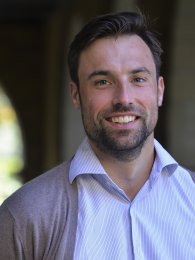
Cyber threats, fake news, propaganda campaigns and artificial intelligence. This so-called hybrid warfare are the new concerns in the world of defence. Traditionally NATO is known for putting conventional arms control at the center of its attention, but how should they respond to those new threats of today’s complex world? Should they drastically alter their policies to stay politically relevant?
In today’s world politics Russia is repeatedly accused of spreading fake news and China and the United States are engaged in a trade war. These cyber threats and economic pressures call for new security strategies. How should NATO respond? Together with Marietje Schaake, Jamie Shea and Max Smeets we discuss NATO’s answers to these hybrid tactics, reflect critically on NATO’s presence in our day-to-day security and take up European security challenges in a changing global order.
Illustration by TRIK.
Speakers:
Marietje Schaake is the new international policy director of the Stanford Cyber Policy Center. She served as member of the European Parliament for the Dutch liberal D66 party with the Alliance of Liberals and Democrats for Europe (ALDE). During her membership she was a strong supporter of more cybersecurity and sanctions for cyber attackers. Schaake is a member of the Global Commission on the Stability of Cyberspace.
Jamie Shea is a senior fellow at Friends of Europe think-tank in Brussels and Professor of Strategy and Security at the University of Exeter. Prior to this, he served as NATO Deputy Assistant Secretary General for Emerging Security Challenges. He has worked for the Alliance 38 years and has occupied also a number of senior positions at NATO.
Max Smeets is a senior research scholar at ETH Zurich, Center for Security Studies. He is also an Affiliate at Stanford University Center for International Security and Cooperation and research associate at the Centre for Technology & Global Affairs, University of Oxford. Max is specialized in cybersecurity and his current book project focuses on the causes underlying cyber proliferation and restraint.
Roberta Haar is Professor of Foreign Policy Analysis & Transatlantic Relations at Maastricht University.
GEOPOLITICAL CHESS
70 years after NATO’s foundation, in a world which looks remarkably different, De Balie will make a series of three talk shows to unfold the following question: (How) Did NATO contribute to international peace the last decades, and what should be its role in the future? The programmes will shed light on NATO’s powerful presence in Central Europe and its influence on the future of international geopolitical chess.
Speakers



